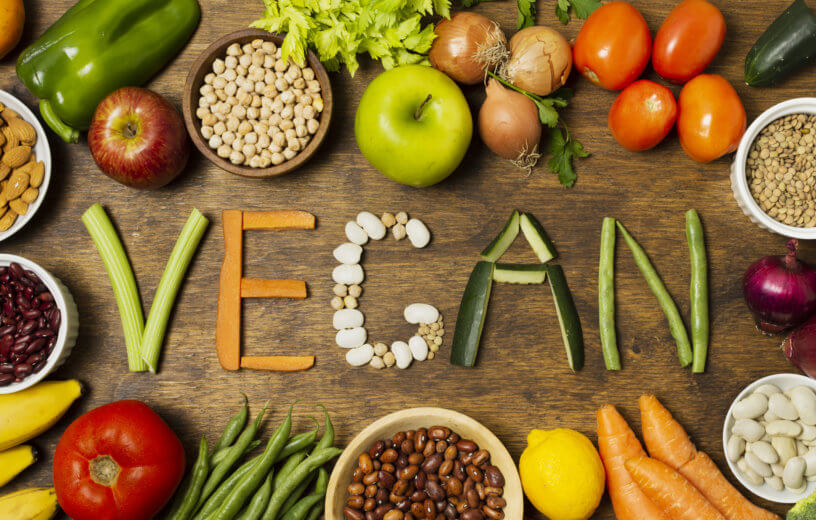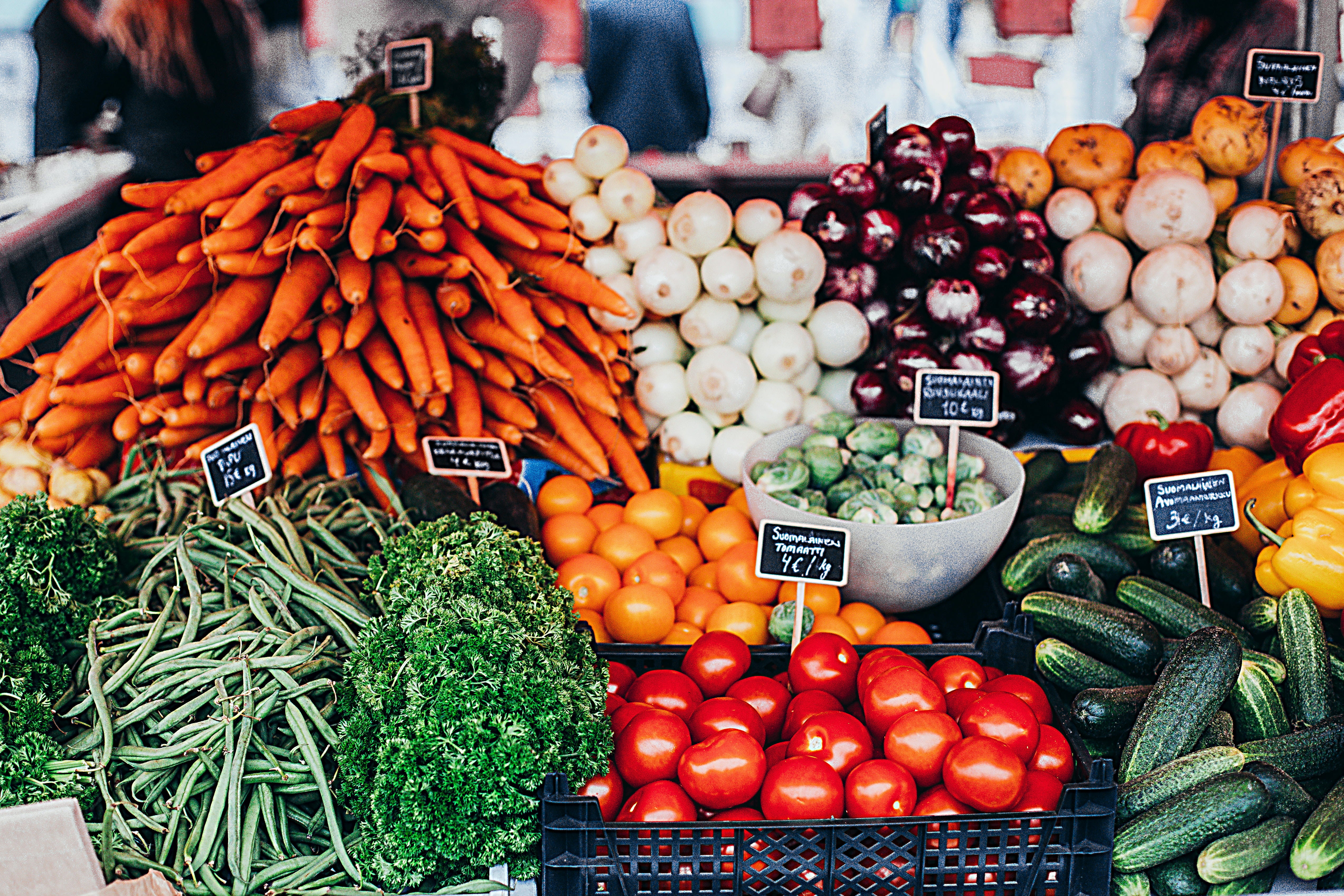Hi, I'm Sophie. I'm a Postgraduate Student studying a Research degree in Media and Cultural Studies. I'm also a photographer and big lover of dogs!

Veganism has become a more popularised movement in recent years, with more and more people joining in Veganuary each year. However this doesn’t mean it is yet fully understood, and there are still a lot of misconceptions about what Veganism actually means for individuals.
Here are 5 of the most common Vegan myths, debunked!
1. Plant-based diets lack protein
Probably the most common myth surrounding veganism is that plant-based diets do not enable you to consume as much protein as necessary, meaning that vegans are all far too used to hearing the old “Where do you get your protein from?” question. In reality, a lot of vegan food is sufficient in protein levels, and so vegetarians and vegans tend to eat more protein than the daily minimum recommended amount, and protein deficiencies are extremely rare.
So where does Vegan protein come from?
Natural beans and pulses are actually all foods that are high in protein, meaning that items such as tempeh, lentils, chickpeas, almonds, and quinoa are ideal protein sources for vegans.
2. Vegan lifestyles/plant based diets are more expensive

Whilst some meat alternatives can be pretty pricey, this doesn’t mean they have to take up the majority of your shop. Everything your body needs can be got from fruits, vegetables, beans, pulses and basic carbs (like pasta), all of which are on the inexpensive side of a food shop. There’s also a high chance that a lot of things you eat are already “accidentally vegan” so you may not have to swap out as much as you think!
3. Vegans need to take more vitamin supplements
Whilst it isn’t untrue that meat-based diets contain vitamins that are harder to get on a vegan diet, it does not mean this is impossible.
The vegan diet contains all the ingredients for optimal health when eating a range of pulses, seeds, fruit, veg and fortified foods: just like non-vegan diets. Vegans and non-vegans alike can take a supplement to ensure that they are getting all they need. The majority of the vitamins which are needed for optimal health can be gained from a balanced vegan diet although there are some vitamins, such as B12, which vegans need to ensure to consume supplements for or include fortified foods in their diet with that vitamin. Therefore before starting a vegan diet it is necessary to do research into what vitamins can be sourced through a vegan diet and which cannot.
Also, as a Vegan it is sometimes necessary to check where sources of vitamins come from in some fortified foods, e.g. there is a form of vitamin D (for healthy bones and teeth) derived from the oils in sheep’s wool, meaning it is unsuitable for Vegans.
4. The word “Vegan” only refers to food choices
Whilst food is a major part of a Vegan lifestyle, it is not limited to just this.
As defined by the vegan society, to be vegan means to choose a way of living which seeks to exclude—as far as is possible and practicable—all forms of exploitation of, and cruelty to, animals for food, clothing, cosmetics or any other purpose.
Though, of course, the classification of Vegan can differ between individual interpretations, the core value of reducing exploitation or cruelty of animals means that it is definitely not limited to just food intake and consideration needs to be taken into these other life aspects.
5. Being Vegan means only healthy eating and choices
Although fruits and vegetables do often make up the core of eating vegan, this in no way means being vegan is 100% healthy all of the time. There are many vegan junk food options out there, both in supermarkets and even now in the majority of the most popular fast-food vendors!
Like most other ways of eating, veganism can be as healthy or unhealthy as you want it to be, but you should always ensure you are eating a balanced diet, including 5 portions of fruit and veg a day.

Hopefully these tips will have helped debunk some of these common myths surrounding veganism and maybe even convince you to try your hand at being vegan.
Whether it’s for the animals, health, or maybe even the environment, having even just 2 vegan days a week can massively help reduce carbon emissions, save animals, and go towards showing that there is demand for change.
- Topics
- Animals
- Environment
- Vegan



